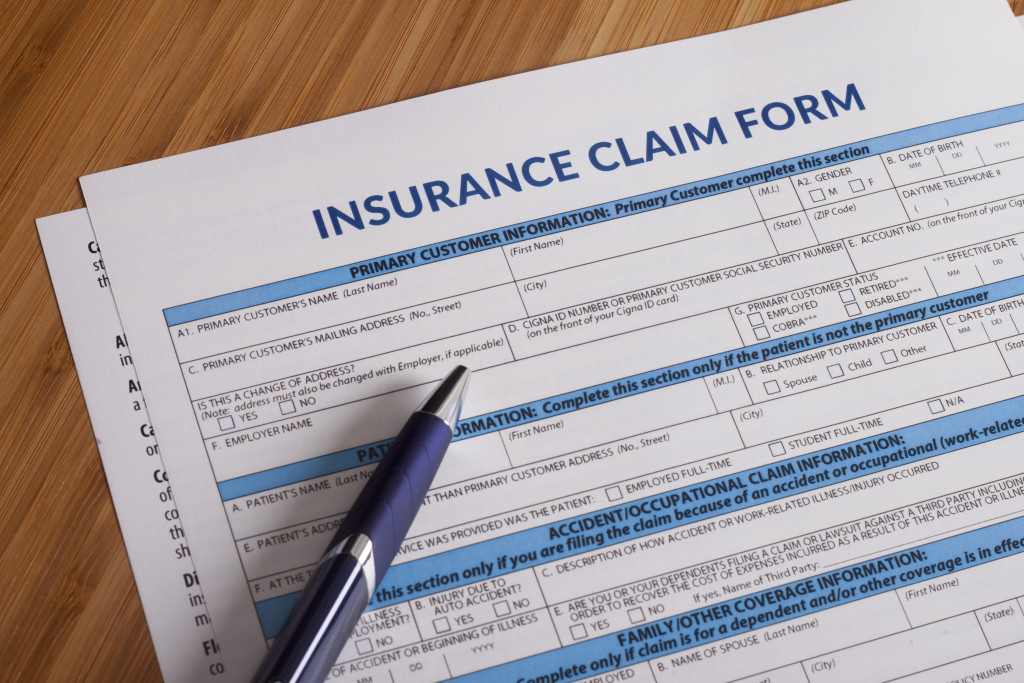Accidents happen; when they do, it’s essential to know how to file an insurance claim. The process can be daunting, but if you take the time to gather the necessary information and paperwork beforehand, it can help make the process go much smoother. Here’s what you need to know before filing an insurance claim after an accident.
What to Do Immediately After an Accident
The first thing you should do after an accident is to assess the damage and make sure everyone involved is okay. If anyone is injured, call 911 immediately. Once the scene is safe and medical attention has been taken care of, you can start gathering information for the insurance claim.
You’ll want to exchange insurance information with the other driver or drivers involved. You’ll also want to take down their contact information, as well as the names and contact information of any witnesses. If you have a camera handy, take photos of the damage to all vehicles involved and any skid marks or other evidence at the scene.
All these can help prove how the accident happened later on. Without proof, many insurance companies will try to say that the accident was your fault — even if it wasn’t. So it’s important to have as much documentation as possible to receive a fair settlement.
Reporting the Accident to Your Insurance Company
You should also call your insurance company after an accident as soon as possible. They can help you start the claims process and may even have their investigators come to the scene to gather information. Of course, you’re not obligated to use their investigators, but it can be helpful to have someone on your side looking out for your interests.
After you’ve reported the accident to your insurance company, they will assign an adjuster to your case. The adjuster’s job is to investigate the accident and determine how much the insurance company should pay. They may ask you for more information or documentation, such as police reports, medical records, or bills for repairs.
If the adjuster decides that the accident was your fault, you’ll likely have to pay your deductible and may end up paying more for your insurance premiums in the future. However, the other driver’s insurance company should pay for all damages minus your deductible if the accident wasn’t your fault.
What Happens if Your Claim is Denied?
If your insurance claim is denied, don’t despair. The first step is to find out why your claim was denied. It could be for several reasons, such as missing information or insufficient evidence. If you have the necessary documentation, you can resubmit your claim and hope for a different outcome.
You can also appeal the decision if you feel like it was made in error. To do this, you’ll need to write a letter to your insurance company explaining why you believe the decision is wrong and what evidence you have to support your case. If you’re unsure how to do this, you can always hire a lawyer to help you with the appeals process.
When you appeal your case, an insurance company will usually assign a different adjuster to take another look at your claim. You can take your case to court if they still deny your claim. However, this is usually a last resort, as it can be expensive and time-consuming.
Filing a Lawsuit After an Accident
You may decide to file a lawsuit if the other driver’s insurance company denies your claim or offers you a low settlement or if your damages are particularly severe. In these cases, you may need to take them to court to get the compensation you deserve since insurance companies are known for being notoriously difficult to deal with.
However, before you file a lawsuit, you should always speak to a personal injury attorney to find out if you have a case and to get advice on how to proceed. They can help you gather evidence, build a strong case, and negotiate with the other side to settle.
Although going to court is a much more complicated process than simply filing an insurance claim, it may be the only way to get the money you need to cover your damages. So if you’ve been involved in an accident, don’t hesitate to speak to a reliable lawyer about your legal options.
The bottom line is that accidents can be stressful and confusing — but having the correct information can make the process much less daunting. Make sure to gather as much information as possible after an accident and contact your insurance company as soon as possible. They will be able to guide you through the claims process and help get you back on track.






